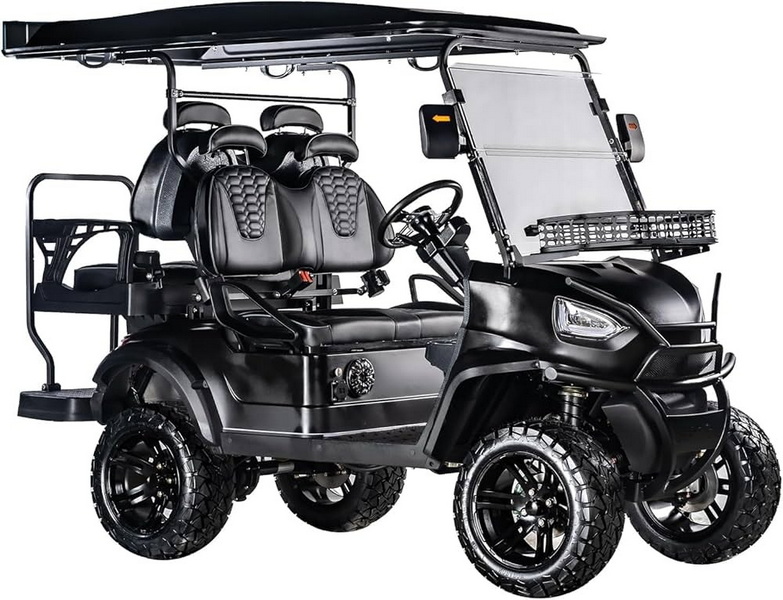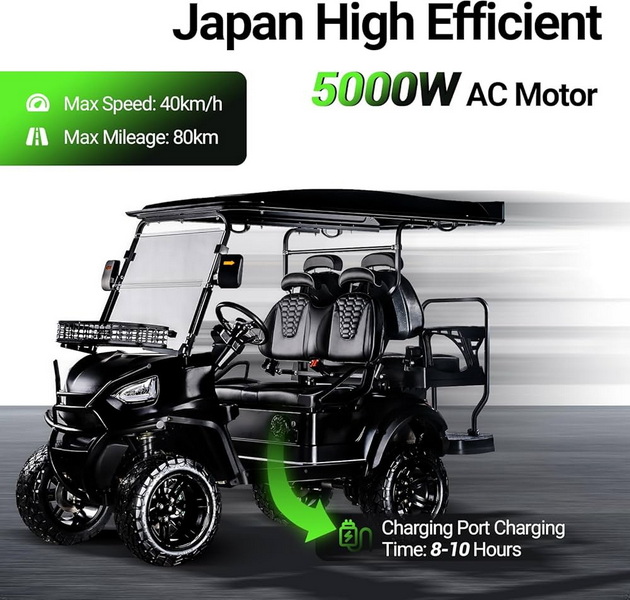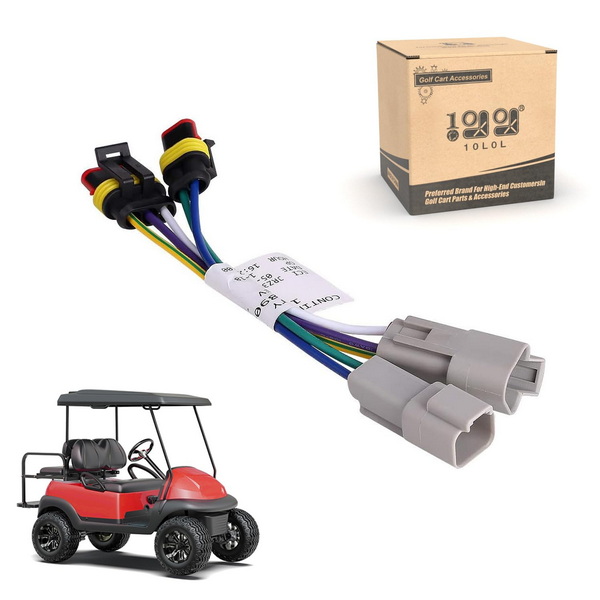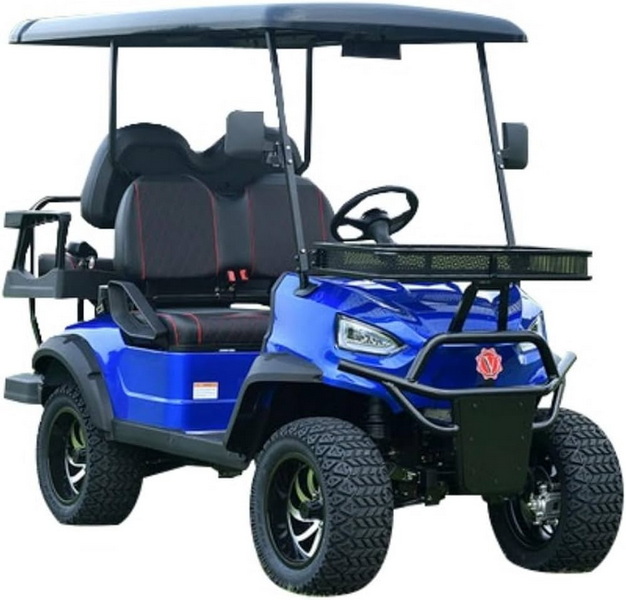Content Menu
● Understanding the MCOR
>> How Does It Work?
● Different Models of MCOR
● Symptoms of a Failing MCOR
● Replacing an MCOR
● Benefits of Electric Golf Carts
● Maintenance Tips for Electric Golf Carts
● How Electric Golf Carts Work
● Conclusion
● FAQ
>> 1. What is an MCOR?
>> 2. How do I know if my MCOR is failing?
>> 3. Can I replace my MCOR myself?
>> 4. Are there different types of MCOR?
>> 5. What are the advantages of using electric golf carts?
Electric golf carts have become increasingly popular due to their eco-friendliness, ease of use, and low maintenance costs. A crucial component in many electric golf carts, particularly those made by Club Car, is the Motor Controller Output Regulator (MCOR). This article will explore what an MCOR is, its function within electric golf carts, the different models available, how it impacts the performance of these vehicles, and essential maintenance tips to ensure longevity.

Understanding the MCOR
The MCOR, or Motor Controller Output Regulator, serves as a throttle position sensor in electric golf carts. It translates the movement of the accelerator pedal into an electrical signal that informs the motor controller how fast to spin the motor. Essentially, it acts as a bridge between the driver's input and the cart's power output.
How Does It Work?
When a driver presses down on the accelerator pedal:
1. The MCOR senses the position of the pedal.
2. It sends a corresponding electrical signal to the motor controller.
3. The motor controller adjusts the power supplied to the motor based on this signal.
This process allows for smooth acceleration and deceleration, enhancing the driving experience.
Different Models of MCOR
There are several models of MCOR used in Club Car electric golf carts, each designed for specific cart models and years:
- MCOR 1: Used in DS and Carryall models from 2000.5 until 2011-2012.
- MCOR 2: Designed for Precedent models; still in production.
- MCOR 3: Introduced to replace MCOR 2 but faced reliability issues.
- MCOR 4: Currently used in some DS and Precedent models; improved design over MCOR 3.
Each model features distinct characteristics that affect compatibility with different cart types.
Symptoms of a Failing MCOR
A malfunctioning MCOR can lead to various issues in electric golf carts:
- Jerky Acceleration: Inconsistent power delivery can cause sudden surges or drops in speed.
- Failure to Start: The cart may not respond when pressing the accelerator.
- Speed Limitations: The cart may not reach its full speed potential.
If any of these symptoms occur, it may be time to inspect or replace the MCOR.

Replacing an MCOR
Replacing an MCOR is often necessary when it fails. Here's a general overview of how to replace one:
1. Disconnect Power: Always ensure that the cart is powered off before starting any repairs.
2. Remove Floor Mat: Access to the MCOR typically requires removing the floor mat and any covering panels.
3. Unplug Old MCOR: Carefully disconnect the wiring harness from the old unit.
4. Install New MCOR: Connect the new unit and secure it in place.
5. Test Drive: After installation, take the cart for a test drive to ensure proper functionality.
Benefits of Electric Golf Carts
Electric golf carts offer numerous advantages over traditional gas-powered models:
- Eco-Friendly: They produce no emissions, making them better for the environment.
- Lower Operating Costs: Charging an electric cart is generally cheaper than fueling a gas-powered one.
- Quiet Operation: Electric motors run almost silently, which is ideal for residential areas and golf courses.
- Reduced Maintenance: With fewer moving parts than gas engines, electric carts require less frequent servicing.
Maintenance Tips for Electric Golf Carts
To ensure your electric golf cart remains in optimal condition, regular maintenance is essential. Here are some key maintenance tips:
- Check Battery Water Levels: Electric golf cart batteries are designed with lead plates that need to be fully submerged in water to function properly. Regularly check that water levels are adequate to avoid frequent shutdowns or battery damage.
- Charge Batteries Regularly: Always charge your batteries after each use to ensure they are ready for your next ride. A fully charged battery provides better performance and longevity.
- Inspect Tires: Regularly check tire pressure and tread wear. Properly inflated tires enhance safety and improve efficiency while driving.
- Lubricate Moving Parts: Like any vehicle, electric golf carts have moving parts that require lubrication. Regularly lubricate components such as wheel bearings and steering mechanisms to prevent wear and tear.
- Clean Batteries: Keeping your batteries clean can prevent corrosion and improve their lifespan. Use a mixture of baking soda and water to clean terminals if corrosion is present.

How Electric Golf Carts Work
Understanding how electric golf carts operate can help owners appreciate their efficiency:
1. Electric Motor: The batteries power an electric motor that converts electrical energy into mechanical energy through electromagnetic principles.
2. Batteries: Most electric golf carts use lead-acid batteries that store chemical energy and convert it back into electrical energy when needed.
3. Controller: The controller synchronizes with the accelerator pedal to regulate speed based on driver input.
4. Powertrain System: This system connects the motor's rotor to the wheels via gears and belts, allowing for smooth movement forward or backward.
5. Regenerative Braking System: Some advanced models feature regenerative braking systems that capture energy during braking and redirect it back into the batteries for recharging.
Conclusion
The Motor Controller Output Regulator (MCOR) plays a vital role in ensuring that electric golf carts operate smoothly and efficiently. Understanding its function, symptoms of failure, replacement procedures, and maintenance tips can help owners maintain their carts effectively. As electric golf carts continue to gain popularity due to their environmental benefits and lower operating costs, knowledge about components like the MCOR becomes essential for all users.

FAQ
1. What is an MCOR?
An MCOR (Motor Controller Output Regulator) is a throttle position sensor used in electric golf carts that translates accelerator pedal movement into electrical signals for the motor controller.
2. How do I know if my MCOR is failing?
Common symptoms include jerky acceleration, failure to start, or limitations on speed. If you experience these issues, it may be time to inspect your MCOR.
3. Can I replace my MCOR myself?
Yes, replacing an MCOR can be done by following specific steps such as disconnecting power, removing coverings, unplugging the old unit, installing a new one, and testing after installation.
4. Are there different types of MCOR?
Yes, there are several models including MCOR 1, 2, 3, and 4, each designed for different Club Car models and years.
5. What are the advantages of using electric golf carts?
Electric golf carts are eco-friendly, have lower operating costs compared to gas-powered models, offer quieter operation, and require less maintenance.











































